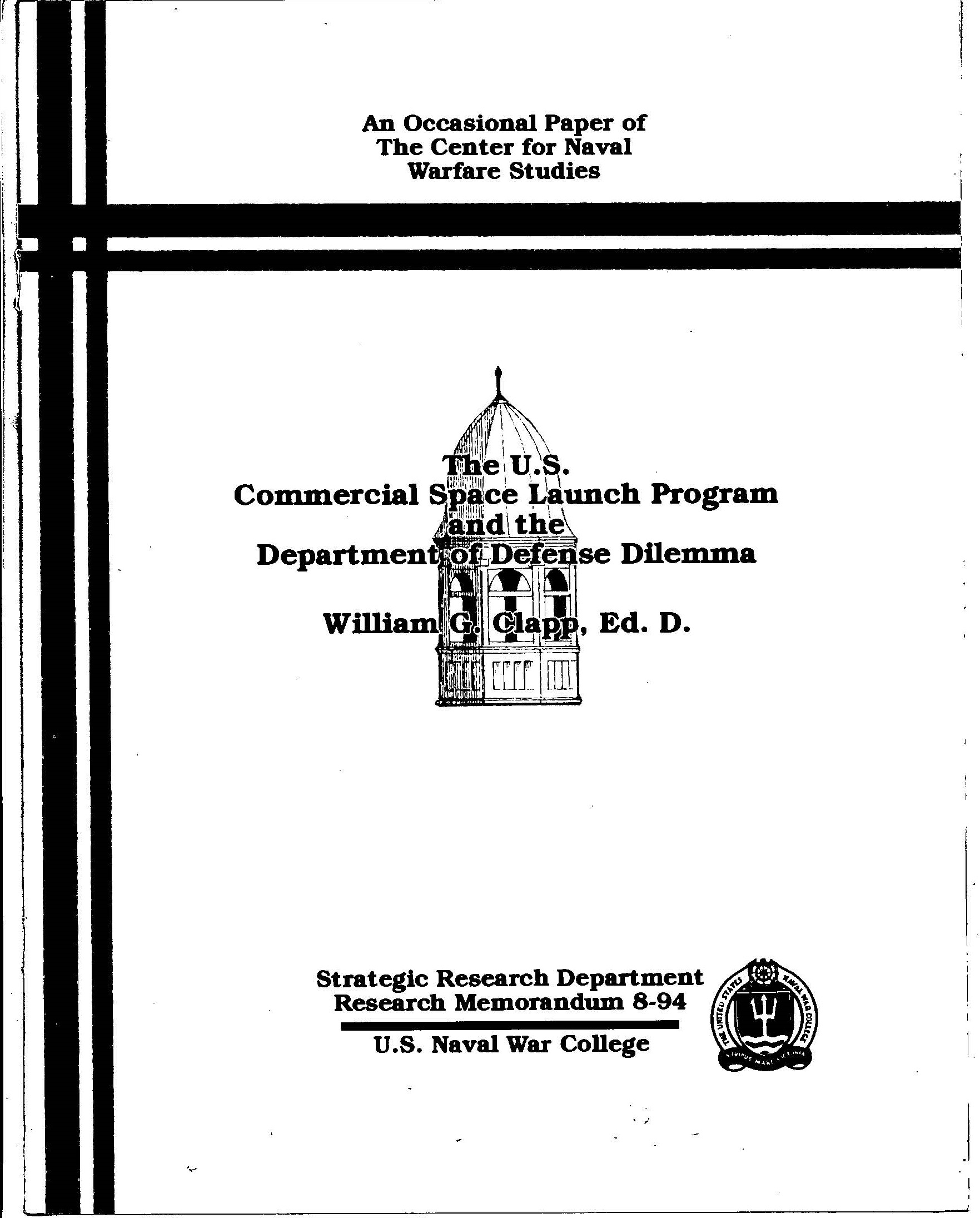Showing Records: 51 - 54 of 54
The U.S. Commercial Space Launch Program and the Department of Defense Dilemma, 1994 Aug 18
A longer version of this paper was originally submitted to the faculty of the Naval War College in partial satisfaction of the requirements for an Advanced Research Program elective William G. Clapp, Ed.D, Major, Utah National Guard that was later updated for publication as a Strategic Research Department occasional paper. In this paper, Clapp described how the U.S. space launch program no longer dominated the world and was instead playing catch-up with the world's first commercial launch company, Arianespace. He suggested that a healthy U.S. space launch program could provide considerable economic advantages and is essential to assure continued low-cost military access to space, but that the space policy in the 1990s prohibited development of new launch vehicles and limited the Department of Defense to only upgrades of existing launch vehicles as well as a declining DoD budget. He also identified Arianespace's advantages and offered low-cost recommendations for countering them that would help the U.S. once again dominate the world commercial launch market and ensure affordable military access to space.

U.S. Commercial Space Launch Program and the Department of Defense Dilemma, by William G. Clapp
Wheaton, Thomas R.: The Strategic Significance of Space Satellites, 1958 Mar 10
Student paper written by CDR T. R. Wheaton, USN as part of Naval Warfare Class of June 1958. In this paper, Wheaton discussed the basic characteristics of space satellites, the potential development of satellites, and the implications of the potential of space satellites on weapon systems concepts.
Williams, Wayland W.: The International Implications of Man/Machine in Space, 1964 Mar 2
A student paper by Lieutenant Colonel Wayland W. Williams for the course in naval warfare at the Naval War College in which he discussed how the destiny of nations have historically been shaped by the application of science and technology to the revolutional military capabilities with space capabilities being the most recent product. The impact on international affairs of man/machine in space and the potential of a nation's space capabilities to provide new tools of political and military strength are discussed and a comparison of the space accomplishments of both the U.S. and Soviet Union is also presented.
